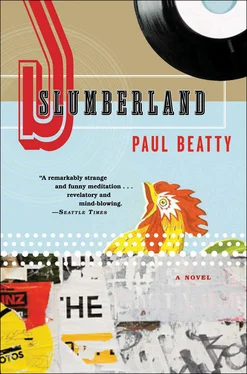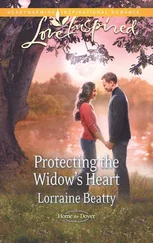I’d always thought music writers, like gangsters, were too cool to dance; yet there was Lars doing a very credible strobe. Stopping and starting his body rock with such rapidity it looked as if he were moving underneath the flickering brightness of a strobe light. He pop locked over to me and touched me on the arm.
“Charles Stone.”
This time I knew what to say.
“Tom Cruise, motherfucker.”
During the next few weeks Lars and I bonded over Osamu Dazai, a thirty-year-old bottle of Poit Dhubh malt whiskey, the welter-weight fearlessness of Oscar De La Hoya, and the cleverness of contemporary American everything at the expense of passion. He claimed to be the only person alive who’d actually read Thomas Pynchon’s twenty-five-pound opus Gravity’s Rainbow without having yawned even once, and I believed and respected him for it. “A wonderful piece of children’s literature,” he said. “If only it were five hundred pages longer and a little less transparent.” For him reading the book to completion was like fighting a meaningless war and living to tell about it. Vietnam, Desert Storm — I’m against the wars but support the soldiers. He’d invite me over to his flat just so I could watch him finish his review of the latest American “me novels.” He’d toss the galley copy into the trash and say, “I’m against the author, but support the reader,” then tell me how he gave up fiction because whenever he submitted a gritty, realistic manuscript the publishers would say, “We like it, but we want more plot,” or if he submitted a tight, linear narrative, they’d say, “We like it, but we want more realism.” Jealous of everyone and anyone’s success, I gathered up the nerve to show Lars my novel, a work in perpetual progress composed entirely of opening sentences, the best of which he thought was, “ ‘We will be cruising at an altitude of zero feet, our estimated time of arrival is never, and the temperature in hell is bloody hot with searing winds out of the southwest. Sit back and relax and ignore the seat belt sign. Thank you for flying Kamikaze Airways,’ the pilot announced into the loudspeaker, his shoulders shaking with what the psychiatrists call ‘inappropriate laughter.’ ”
Defiant in my determination to complete my quest solo, I avoided any talk or discussion about Charles Stone until one autumn day when Lars, Doris, and I drove back from Jam, an outdoor party held on the banks of the Spree. Horace Silver’s “Señor Blues” crackled from the tinny dashboard speakers. It’s a wonderful driving song, and his sun-faded red Alfa Romeo convertible scuttled through Berlin leaking oil and bop pianissimo. At a stoplight Lars lowered the volume.
“What’s it like listening to jazz with no white people around?” he asked, apropos of nothing except that Horace Silver and me were both black and he wasn’t.
I recall my face in the side-view mirror. Forlorn. Fed up. Homesick. I wish I hadn’t been so offended by Lars’s curiosity. I wish that, like he and most other cultural critics, I believed in the mystique and exclusivity of Negro expression.
“You know what happens when you listen to jazz when there’s only black people around?”
Lars stiffened excitedly in his seat, his hands tightening around the steering wheel. I cleared my throat of sarcasm and hocked a spit wad of derision into the street.
“Well, if there’s just the right amount of barbecue sauce on the ribs and mentholated smoke in the air, we pass around the ‘jungle juice,’ a fruity, tribal, hallucinogenic Kool-Aid-based beverage, and wait for Coltrane, Clifford Brown, or some other goateed shaman to hit that perfect flatted fifth, sending us all into a collective trance state that awakens the dormant recombinant gris-gris gene in our mitochondrial DNA, thereby catapulting us into the fifth dimension where we surrey down to a stoned soul picnic, rejoicing in the cessation of the racist phenomenological world and attainment of Negro nirvana that for me, ironically, is absent any other Negroes.”
“Fuck you.”
“You asked. Next time I’ll tell you about how whenever two black quarterbacks face each other in a football game, black America gets a collective migraine because we don’t know which team to cheer for.”
At least Lars was curious about the appeal of jazz to black folk; for most observers, such ponderation is akin to contemplating why gorillas like bananas. The attractiveness of jazz to the nonblack is well documented in publicly funded documentaries where experts speak of jazz in the past tense. They look authoritatively into the camera and ingratiate themselves with the Man by saying things like, “White people were hearing something in jazz that says something deeply about their experience. I’m not sure that it would have been this way if we were not a country of immigrants. . so many people felt kind of displaced. . I think that was part of its amazing appeal, was how it spoke to feeling out of sort and out of joint and maladjusted.”*
What hogwash. Does my fondness for classical music make me well adjusted? Besides, people who are really fucked up don’t turn to jazz; they turn to heroin, opium, whiskey, and Vonnegut.
Lars turned up the radio. A bouncy yet vacuous tune that I couldn’t quite place replaced the Horace Silver. The music didn’t fill the air so much as pass through it. The song tried hard to be jazz, to be noble, to be American. The band wasn’t playing jazz so much as it was playing the history of jazz. I said something I rarely say about any piece of music.
“I have no idea who this is.”
Lars started to laugh, but a look of concern quickly reconfigured his face.
“You don’t know?”
“No.”
“You’re not fucking with me?”
“No,” I insisted, staring down the radio dial as if that would give me a clue.
The trumpet player’s recording levels were set a shade higher than the rest of the band, so I figured he was the leader. He lit into a bewailing tremolo. His technique was exquisite. The tone had the crisp dryness of a nice house sake, but there was a sterility to his phrasing that left me feeling empty and used.
Lars looked at his watch and, taking his hands off the wheel, pretended to write an obituary on the palm of his hand.
“Tonight, at five fifty-seven P.M. on a warm October evening, the American Negro was officially declared dead. His passing will be mourned by all who’ve enjoyed his musical precocity.”
“This time, fuck you .”
Lars drove with his knees better than I did with my hands. He’d eased the car into a fairly sharp turn, merging into traffic with a smile and peace sign for the Renault he’d almost side-swiped. The song and Lars forged intrepidly on.
“When I reviewed this record, the best description I could come up with was ‘nondescript.’ I was listening to it and completely forgot it was on. You know, when I review a good jazz album my neighbors’ kids come running into the flat, hands over their ears, screaming, ‘Was ist das Herr Lars? Was ist das?’ begging to know the name of the strange sounds coming from my living room. This time they stayed at home. Frau Junker, the elderly woman who lives across the hall, was the only one listening. In the middle of a solo she rang my bell, and when I opened the door, she says, ‘It’s a shame about the black man. I miss them,’ and returns to her business.”
Lars wouldn’t take the wheel. Pissed off that blackness was dead, he sat there with his arms folded and a Fritz Lang monocle squint on his face.
“Wynton Marsalis,” I said suddenly, pounding the dashboard in disgust. “That’s who this is.”
I should have known sooner; the tempo’s self-important braggadocio was a dead giveaway. Marsalis, New Orleans born and New York praised, is jazz’s most famous living musician. He’s been around for years, but until that night I’d never heard one note of his astringent horn in public. I’d never seen one of his CDs in a poolroom jukebox or seen a spry, elderly, know-it-all black man hanging out in front of the supermarket, snapping his fingers and whistling one of his melodies to pass the time. He’s a middle-aged child prodigy to whom everyone gives plaudits, but no one plays.
Читать дальше












